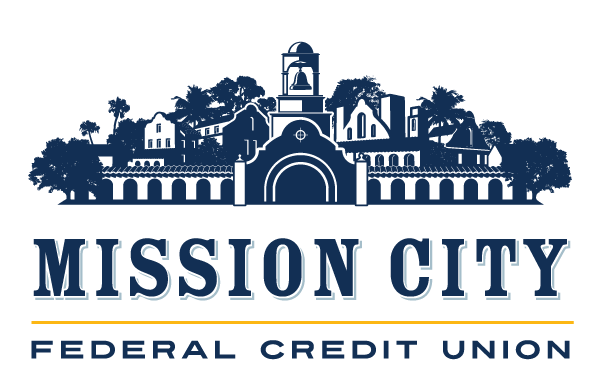Fraud Prevention Tips

Mission City FCU’s members enjoy the benefits of an organization committed to keeping our members accounts and personal information confidential.
Utilize tools such as our Secure Login when accessing your account via your mobile device. Whether your phone is geared for face or voice recognition, pin or password authentication, these methods are all secure ways to log in to the Mission City Mobile App.
Freeze Your Card
If your debit or credit card is lost or stolen, you can freeze it to prevent unwanted purchases. If you find your card, you can unfreeze it immediately, with just one click.
Travel Notices
For your security, your debit and credit cards decline foreign transactions by default. So, when you plan to travel abroad, please inform us of your travel dates. We’ll unlock your cards for the dates you are outside of the US.
Fraud Response
Rest assured we monitor systems around the clock and when we detect a problem, we’ll reach out to you.
eAlert Subscriptions
eAlerts are notifications for account activity you want to be notified about. You can configure them to alert you about account balances, transaction amounts, loan payment reminders, and more. You can also configure them to be delivered only to the message center, or via an email or text message notification (or both).
General Fraud Prevention Tips:
1. Monitor Your Accounts Regularly: Frequently check your credit union statements and account activity for any unauthorized transactions.
2. Use Strong Passwords: Create complex passwords that are difficult to guess and change them regularly.
3. Enable Alerts: Set up account alerts to receive notifications for transactions, logins, and other account activities.
4. Be Cautious with Personal Information: Do not share personal or financial information over the phone or online unless you are sure of the recipient’s identity.
5. Secure Devices: Ensure your computer and mobile devices have up-to-date antivirus software and firewalls.
6. Beware of Phishing Scams: Be skeptical of unsolicited emails or messages asking for personal information. Verify the source before clicking on any links or providing information.
7. Shred Sensitive Documents: Dispose of bank statements, credit card offers, and other documents containing personal information securely.
8. Use Secure Networks: Avoid conducting financial transactions over public Wi-Fi networks.
Common Fraud Prevention Tools:
1. Two-Factor Authentication: Adds an extra layer of security by requiring a second form of verification in addition to your password.
2. Account Alerts: Notifications via email or SMS for account activity, helping you to quickly identify unauthorized transactions.
3. Credit Monitoring Services: Services that monitor your credit report and alert you to any changes or suspicious activity.
4. Fraud Detection Systems: Automated systems used by financial institutions to detect unusual account activity and flag potential fraud.
5. Secure Browsing Tools: Browser extensions or software that help ensure you’re visiting legitimate websites and not phishing sites.
